|
The pre-title sequence of this film is the definition of low-art. Kathy Ireland deserves an Oscar for doing this voice for 87 minutes - I'm sure a lot of ADR was involved. Vinegar Syndrome releasing this in High Definition really accentuates the ingenuity and visual flair Albert Pyun managed on such shoestring budgets - the production design and lighting in particular slaps and I found myself awestruck at the economical panache on display, which I guess to be fair appears to be a trademark of Pyun (I still have plenty to see). Narratively speaking the film really has almost no sense of pacing at all, it isn't amorphous but it just kind of moves to its own rhythms fixated on this strange kaleidoscope of vibrancy above all else. I kind of have no idea what the fuck I watched, but I like how Alien From L.A. in its denouement is ultimately a story of being non-judgmental towards those different, embracing heterodox views, and just going with the flow in order to be comfortable and confident with oneself and others. Also, I would imagine this is a solid movie to watch while inebriated on psychedelics.
0 Comments
I personally love how Geeta Bali weaponizes the male gaze to awaken the Crown Prince of Malabar from his privileged life of ignorance and negligence to see the subjugation inflicted on his people by the Portuguese occupation. She of course then catches feelings and a sweeping romance ultimately rests at the fulcrum of this story but it's quite a strong portrayal of feminity associated with strength and an unwavering spirit regardless. I mean, "The Falcon" is a pretty badass nickname after all. A swashbuckling romance and story of rebellion against Portuguese colonialism that features some wonderfully constructed imagery, exquisite use of lighting, and clinical use of camera movement - all of which seem to very much be staples of Dutt and cinematographer V.K. Murthy accomplished visual language - At least of the 3 films of theirs I've seen lol. There is just an astute understanding of when to move the camera to pronounce the underlying emotions when to invoke expressionist lighting, and the mise-en-scene is impressively realized even in the small spaces of a sea vessel. Out of the gate, this film is abrupt in its characterization of the Portuguese as vile, mean-spirited conquistadors who view the Indian people as nothing but lesser objects to be extorted and exploited for their own gain. This of course just makes it so much more enjoyable when "The Falcon" rallies her people and the prince through their shared love to revolt and agitate the Portuguese by hitting them at the apex of their power - the high seas.
Nordic mythology infused with maximalist brutalism in which there is no intention of doing anything outside of exhibiting that barbarism and immorality of a time in which living was nothing more than primalism. I really appreciate how assured Eggers is in bringing this barbaric time in history to life that reduces humankind to its most animalistic tendencies. The Northman is unapologetically gnarly, brutalist, and uncompromising in its depiction of this time, portraying the Nordic history and their belief systems in a way that feels almost completely detached from modernity, almost alien and unrelatable to the viewer outside of deeply primal impulses. Unsure if it is the film's intent but Eggers seems to view this as nothing more than a wild ride detached from drawing any parallels with modern times. While this film doesn't have much to say thematically - any attempt to assert a critique of the perpetual nature of vengeance and the masculine ethos' propensity for action over introspection feels like a reach - The Northman is effective at telling a story in which there are no good guys or bad guys, in an epoch defined by nothing but impulse and unwavering beliefs. Ultimately, the way Eggers interweaves mysticism through surrealism with histrionic savagery is quite effective, and I had a lot of fun here so who cares if the film doesn't have much to say otherwise because it sure is one heck of a ride and I can always appreciate such an uncompromising vision.
The formal style of this film is so kinetic. Everything about Dreadnaught from the malleable tone to the fight choreography is so inventive and alive. Operates across multitudes of expressivity in which the comedic hijinks and life and death stakes of this story never feel at odds. It feels dangerous yet playful and consistently full of dynamism in everything it does. Far from an expert but Wong Jing's hijinks have never felt so properly balanced and deployed in a way that just works on every level. An absolute blast featuring a formal style that even invokes spaghetti westerns and Giallo sensibilities along the way, ultimately delivering unadulterated kineticism that rarely lets up. Also, the Dragon fight was incredible (not sure what the proper term is for that so I apologize for my ignorance lol)
The obstructions and impediments to love and social harmony in a world constructed around capitalist values. The Shopping mall is both figuratively and literally a place of confinement in which Akerman's minimalist formal style conjures up 80s pop aesthetics but retains a subtle, pervasive sense of restriction. The diverse and varied commodities and services it provides are alluring but ultimately subjugative to the social world, disrupting relationships and the potential for connection due to its insatiable desire for growth that leads humanity to ultimately be tethered to notions of progress that serve the needs and desires of business above all else.
Found this to be utterly transfixing. A hypnotic, sensorial display of nature's reclamation of lands once reconfigured by humanity's commercial interests. What The Still Side manages is completely aural and visual immersion, one in which the omnipresence of nature is consistently felt. Time is the ultimate equalizer, and The Still Side juxtaposes the ecological processes of rebirth and renewal intrinsic to nature with the man-made structures which slowly erode. This juxtaposition is one that rapturously exhibits the power of nature but also its restorative demeanor, but with the grand edifices of vacation destinations, the fantasies they sell are finite, their artificiality only temporary due to humanity's short-sighted pursuits under capitalism in which every opportunity is quickly abandoned once the extraction of profit begins to subside. The Still Side is a sensory, spatial study of ambiguous intentions, and its entrancing audio and visual deployments make this a must-see for anyone who appreciates this type of documentation. So glad I got to see this in a theater.
I'm not sure I can think of another contemporary filmmaker that continuously utilizes magical realism in such a masterful way. Akiko Ohku's stylistic flourishes are so economical and astutely rendered - they are playful, expressive, and wonderfully imaginative but perhaps most importantly, they never undercut the sincerity of her film's emotional and intellectual investigations on urban loneliness and the eternal pursuit of connection and comfort from the harshness of the external world. The duality of internal consciousness and external expression is a recurring theme of Akiko Ohku's work - at least of the 3 films of hers I've seen. With My Sweet Grappa Remedies, Akiko Ohku deploys a film almost entirely devoid of narrative schematics, driven solely by incident and the reciprocity of communication that influences our decisions and desires in the pursuit of attaining happiness. What I continuously find striking about Akiko Ohku's work is the presentation of urban isolation and loneliness is dimensioned and robustly exhibited. Melancholy and levity are intertwined, and how Okhu routinely rejects strict dichotomies such as happiness vs. sadness through a nuanced understanding of living and experience is a major reason why her films are so wonderfully felt. While I did think My Sweet Grappa struggled a bit to maintain its momentum and justify its running time - a thought that didn't even cross my mind with Hold Me Back and Tremble All You Want - there is a lot to appreciate here, as Grappa remains a lived-in, genuinely honest portrait of middle-aged, middle-class milieu amongst those still searching for a semblance of connection - the hope of companionship is as much internal investigation of self as it is an external pursuit of the other.
Similar to Ancarani's last film 'The Challenge', Atlantide is a beautifully rendered document of a very specific subculture. It is largely vibes expressed through a transfixing aestheticization. A mood piece in which documentation reaches towards something transcendental. The film's more lofty ambitions about the masculine id and rudderless youth don't quite achieve the potency or clarity Atlantide seems to be striving for but there is still a lot of like here. Atlantide's alluring sensorial artifice is just the latest document of Yuri Ancarani's directorial prowess, and the way the film depicts the intrinsic contention between mortality and primal masculine impulses provides a fascinating subtext for those into that type of thing. Vibesssssss.
Quite enamored by Goran Stoleveski's You Won't Be Alone, a film that likely won't appeal much to horror hounds given its intentions are far more rooted in existential notions of horror than they are in action or theatrics. A striking, assured vision that should placate horror fans somewhat through some transgressive pleasures, but those seeking more traditional horror will likely struggle to fully embrace this film's rather singular wavelength. You Won't Be Alone wields folk horror as a tool to ruminate on the human condition, aiming to excavate the harsh realities of living and the serpentine nature of violence, both explicit and implicit, that plagues any attempt at social harmony. Reminded me a bit of Under the Skin in the way its central protagonist is a foreigner of humanity attempting in many ways a path towards understanding, and much like that film You Won't Be Alone features a startlingly assured vision, though It doesn't quite attain the same emotional resolve or consistency as Glazer's stellar work. What You Won't Be Alone does manage is a lyrical, metaphysical experience in which the specter of perpetual violence and injustice intrinsic to humanity is examined through a rigorous formal style that enunciates the natural world almost as if to suggest humanity itself has failed due to its attempts at creating rules or guidelines above and beyond that of the elemental. Far from perfect, and perhaps I'm overvaluing this film due to its distinctive vision, but you can bet I'm super curious to see what this filmmaker does next.
Apologies in advance for this analogy but Ninjababy is like a Norwegian amalgamation of Juno and Look Who's Talking that is refreshingly disentangled from patriarchal and puritanical notions of female sexuality and reproductive rights. Traversing familiar terrain with a sharp script that balances its comedic pleasures with an emotionally effective look at personal identity, social expectation, and self-actualization, Ninjababy forges its own path that obfuscates moralizing and reaches toward something more universal and existential. Much of Ninjababy is in fact about female autonomy and the uncertainty is never viewed a pejorative but simply an intrinsic step towards self-discovery. Many films that deploy such formal quirks as Ninjababy's recurring use of animation can often feel unearned or empty but the recurring stylistic motif is utilitarian in its ability to visualize, playfully, the internal mechanisms of this young woman attempting to figure things out. Playful and poignant, Ninjababy is a sharply realized look at a sensitive issue for so many that manage to say something through a methodology detached from didacticism.
|
AuthorLove of all things cinema brought me here. Archives
June 2023
|
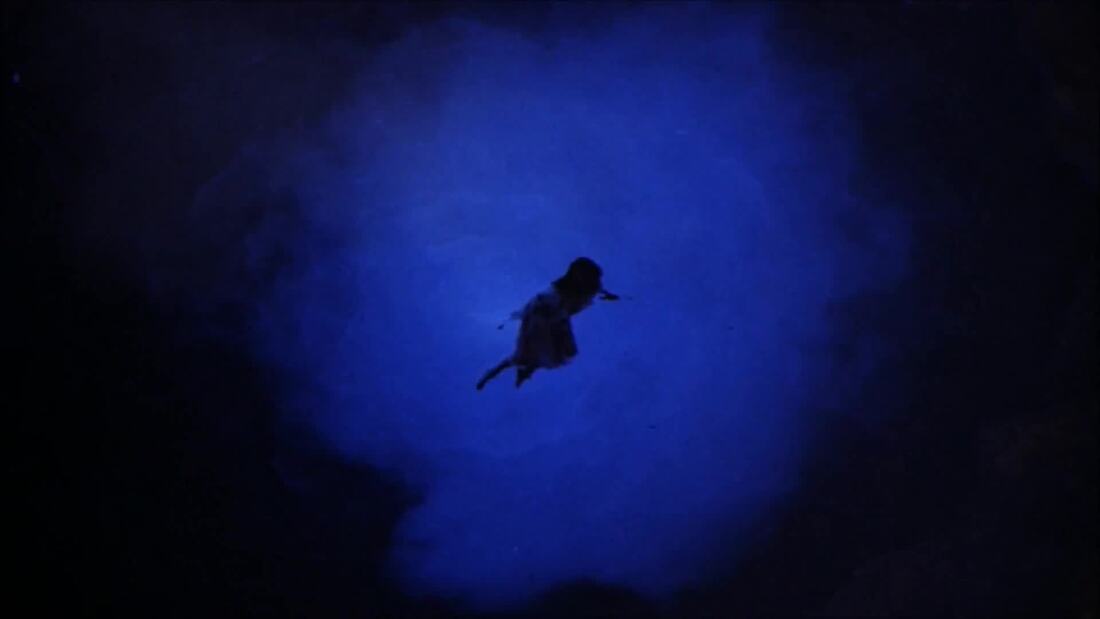
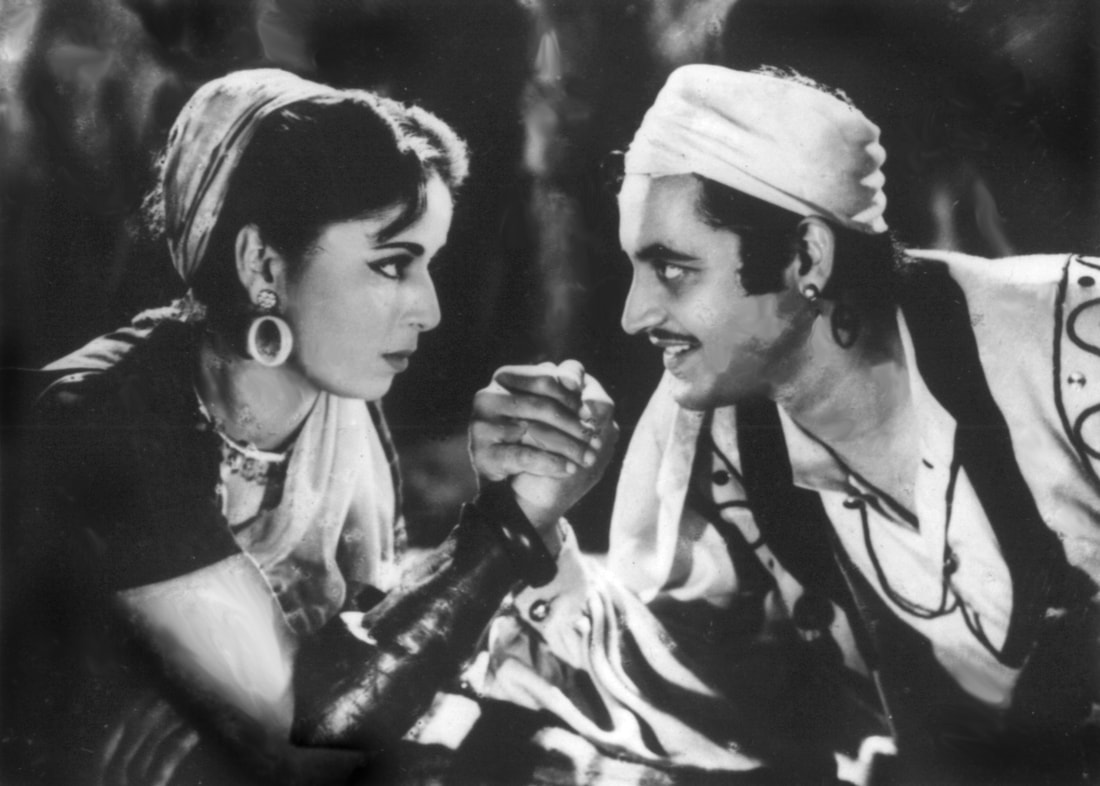
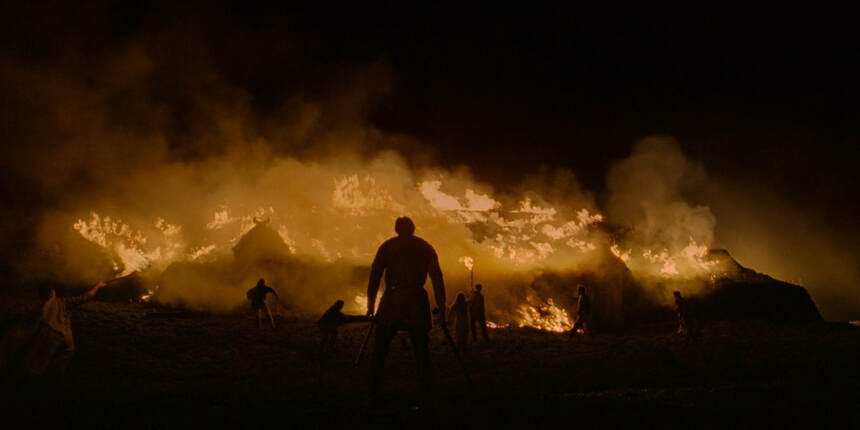

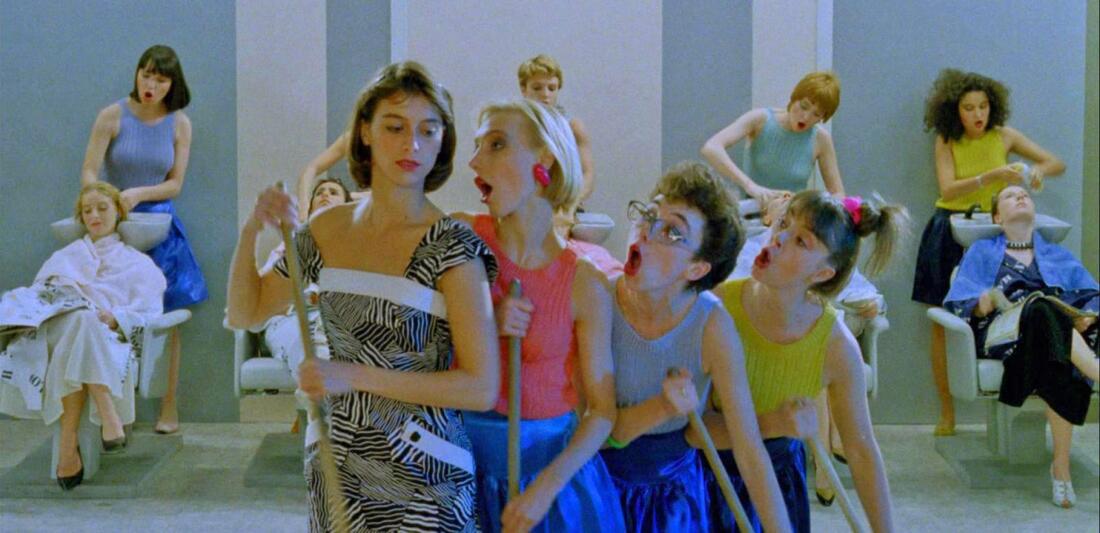

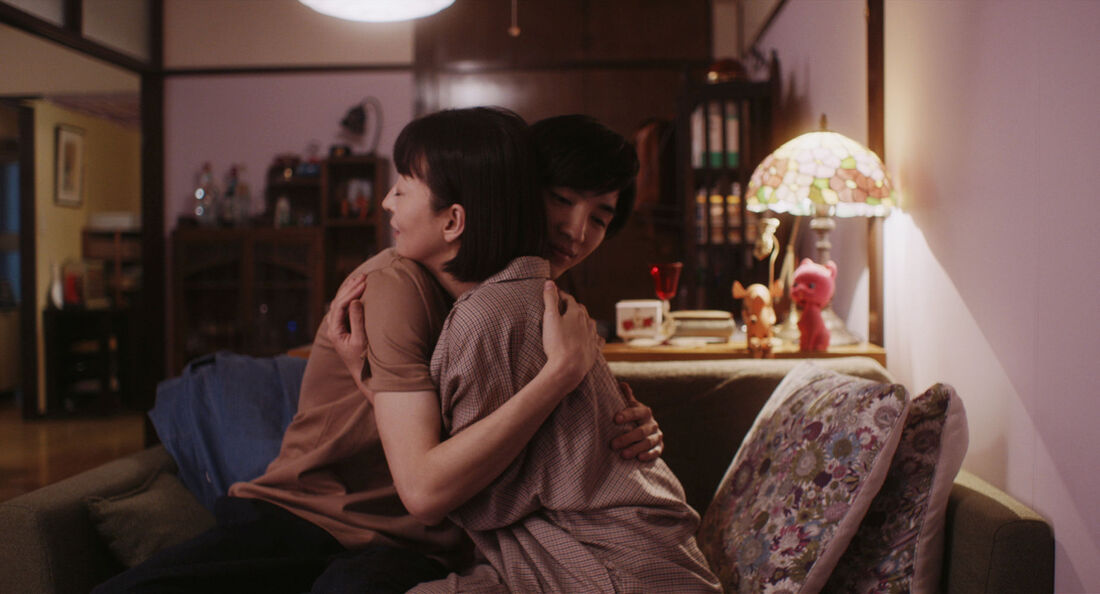
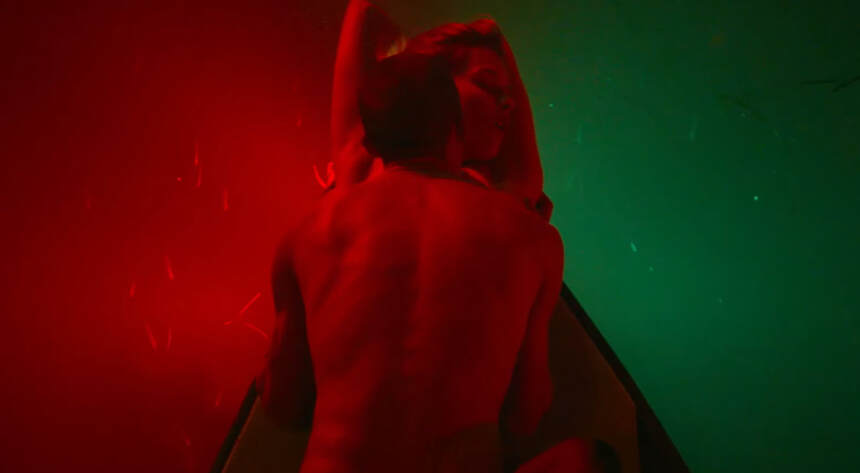
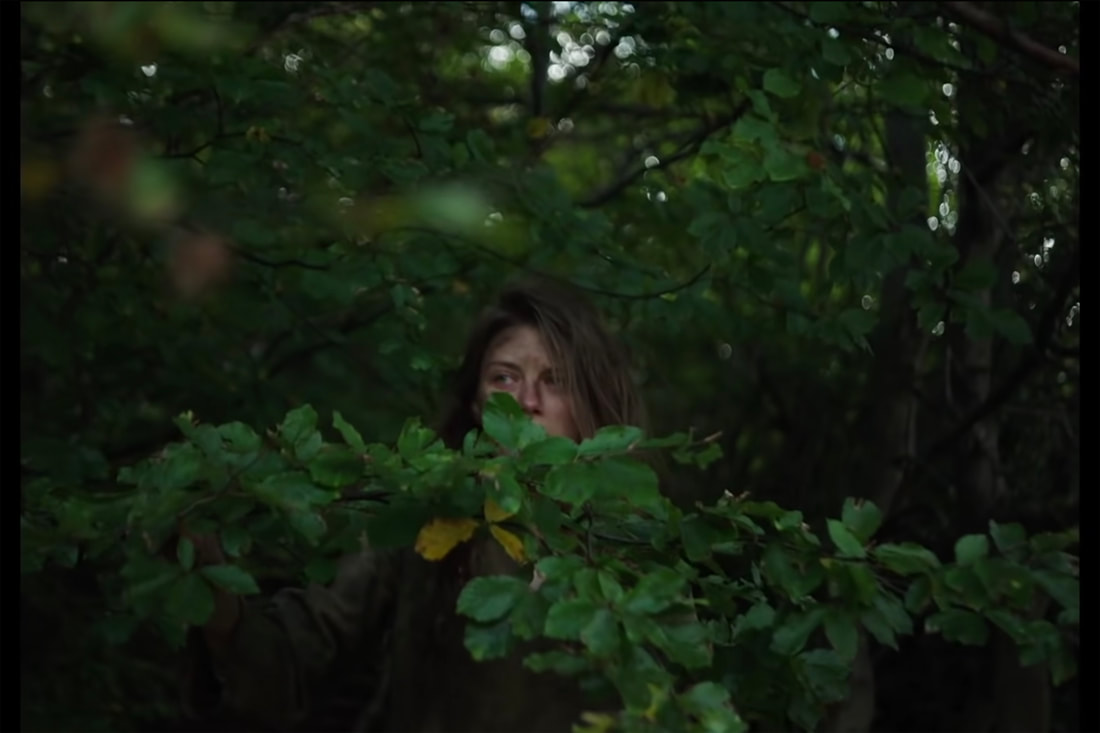
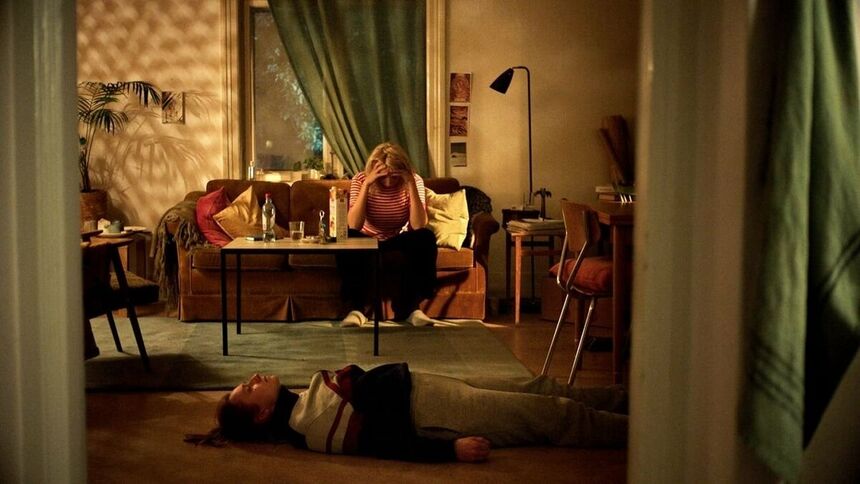
 RSS Feed
RSS Feed
